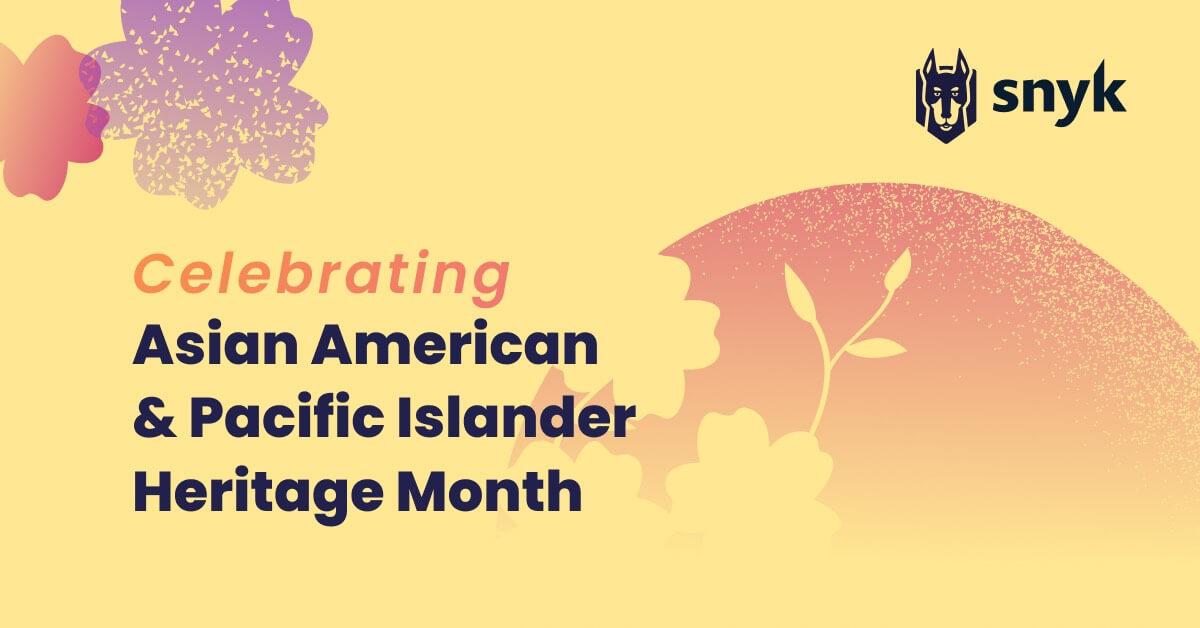Amplifying AAPI Voices to Honor Asian American Pacific Islander Heritage Month
May 25, 2023
0 mins readMay is Asian American Pacific Islander Heritage Month in the United States. As the Asian@Snyk resource group co-leads, we want to blend celebration with education on important issues in the AAPI community by amplifying the voices of our Asian@Snyk resource group members. The Asian diaspora is vast, which means there’s much to celebrate and many experiences and perspectives to learn from.
We spoke with a few Snykers who identify as AAPI, including:
Yanira Wong - VP, Corporate, Legal
Ming Dunning - Director of Procurement Excellence & Operations
Waleed Arshad - Product Manager for Platform
Vandana Verma - Security Relations Leader
Fion Lee - Marketing Brand Designer
Karuna Warrier - Demand Marketing Manager, Media Buying
Tori Young - Impact & IED Co-op
Hear from our Snykers as they reflect on their family culture and heritage, the importance of AAPI Heritage Month, and what it means to break the “bamboo ceiling.”
Culture & heritage
To kick off the conversation, we heard from a few Snykers about their heritage, some interesting facts about each of their cultures, along with reflections on how their upbringings have played a role in their leadership styles and careers.
Yanira reflected on her experiences as half-Mexican and half-Chinese:
Growing up, I was often asked whether I was more Chinese or more Mexican. It felt as if I was being asked to choose sides. I always responded in the same way — that I was both Chinese and Mexican, and like my first name YANIRA (which is Mexican), and my last name WONG (which is Chinese), I was half of one and half of the other.
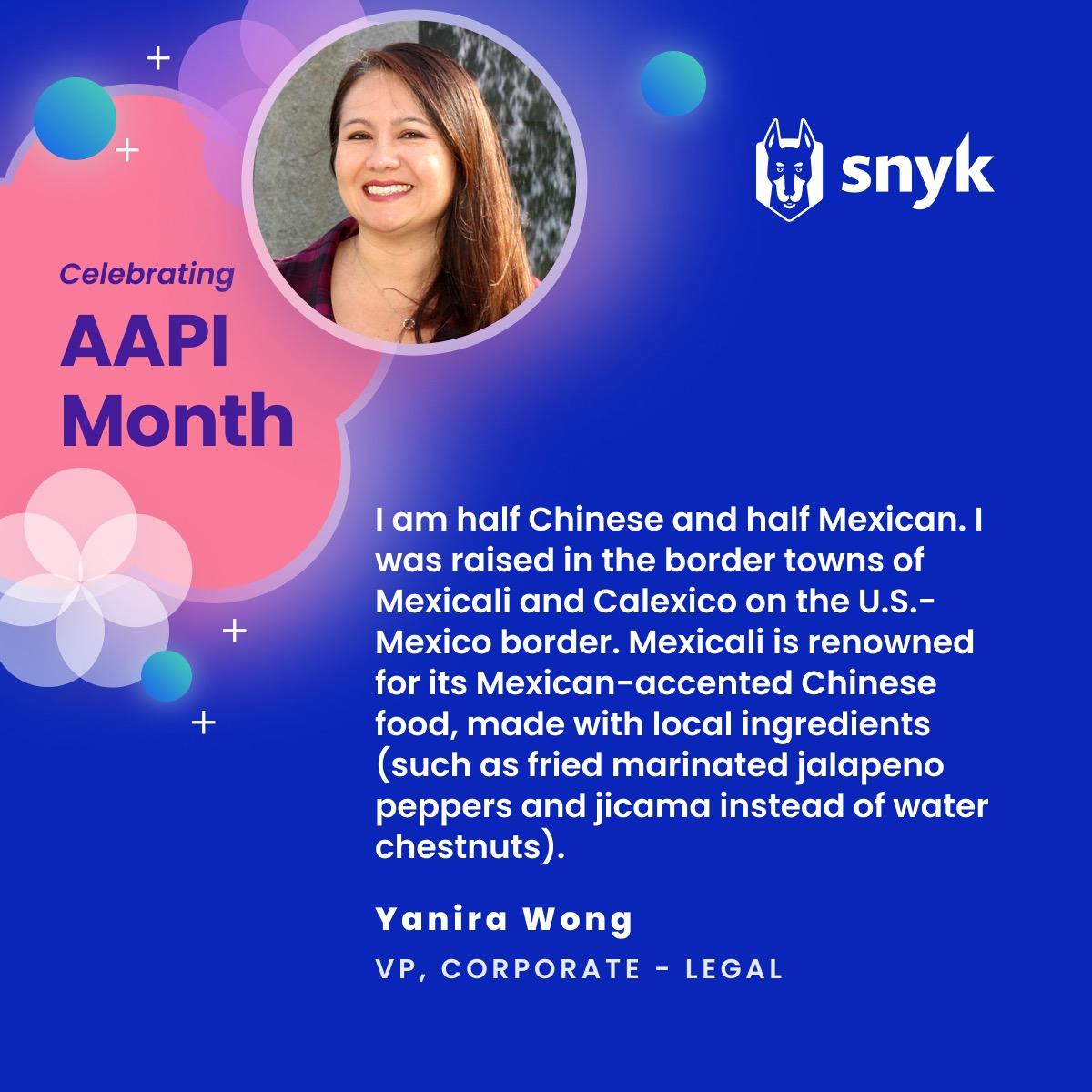
Vandana also spoke about her heritage:
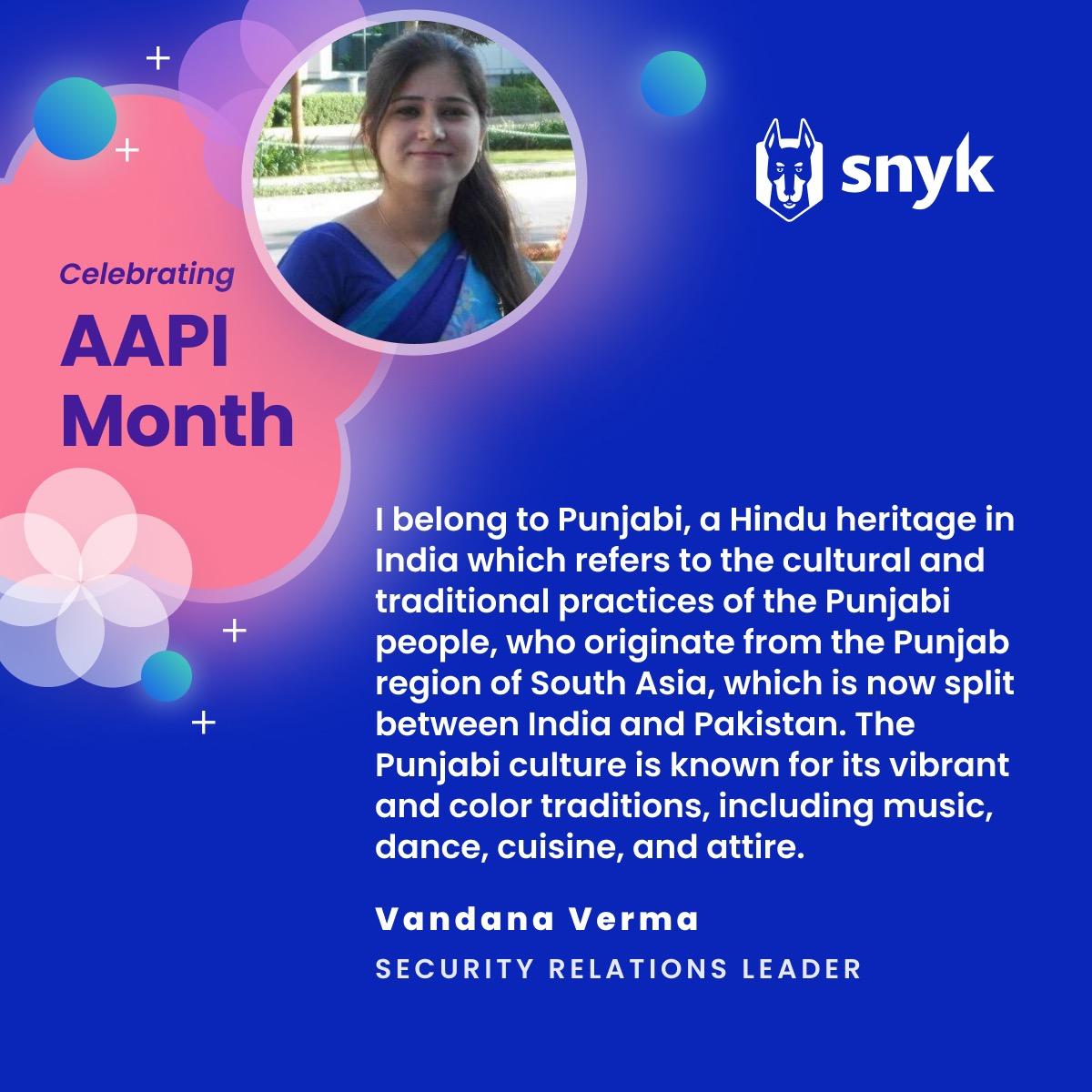
...An interesting fact about Punjabi heritage is that the Punjabi language, which is spoken by over 100 million people worldwide, is the 10th most widely spoken language in the world.
They talked about some of their favorite customs and celebrations as well.
According to Fion:
My favorite custom is the Chinese Tea Ceremony performed before a wedding. The bride and groom will serve tea to their parents and other elder relatives as a sign of respect and gratitude.
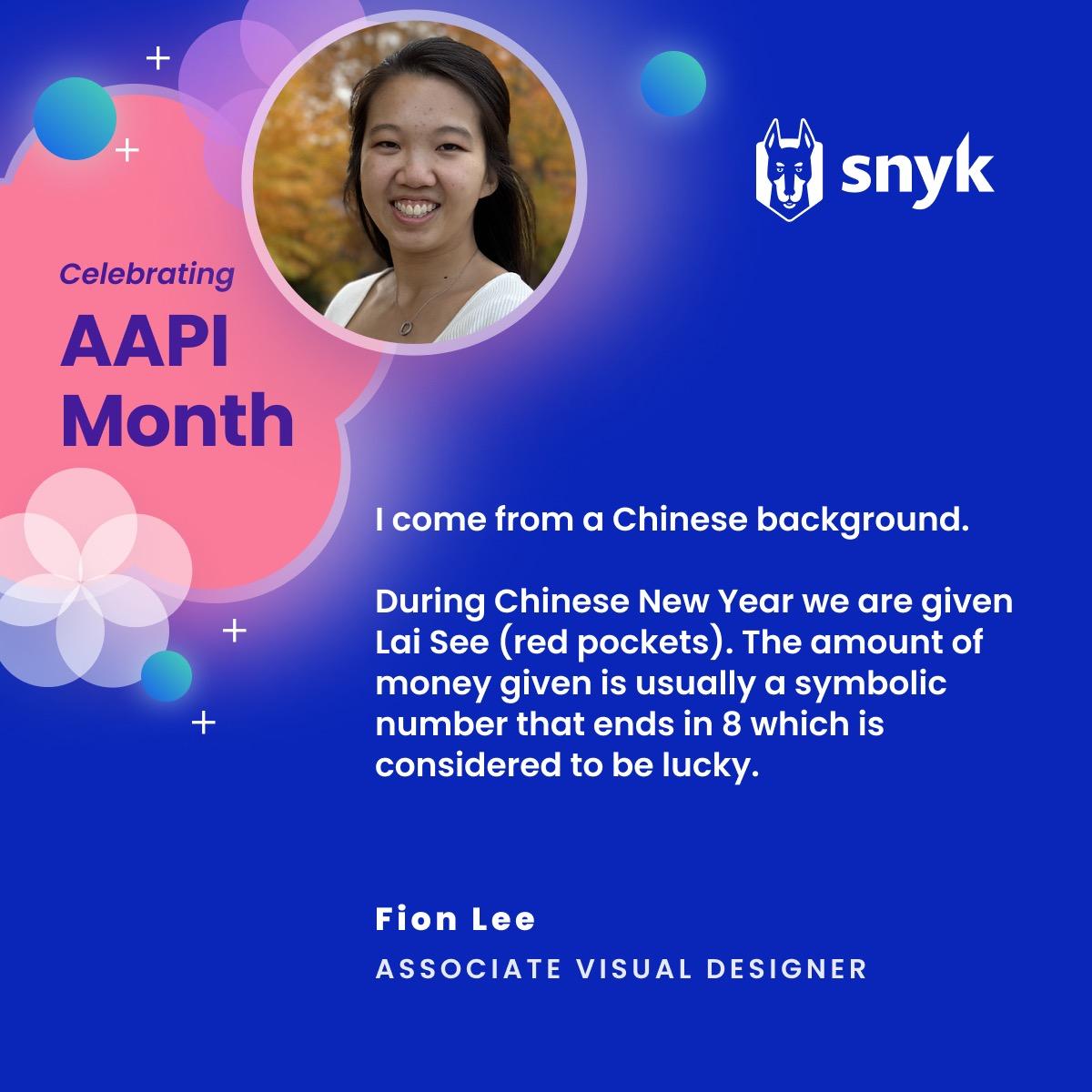
Tori, who comes from a Japanese-Italian family, said:
My favorite custom from Japan is the art of origami. I have a lot of really good memories from my childhood of my mom teaching my sister and me how to fold different shapes and giving them as gifts to my friends and family.
Karuna mentioned one of her favorite Indian celebrations:
My favorite celebration is Onam, celebrated in the state of Kerala. This festival celebrates the rice harvest between the months of August and September.
How heritage influences career and leadership style
Our Snykers also brought up parts of their culture, heritage, or upbringing that they’ve incorporated into their careers and leadership styles.
Waleed reflected on how his Pakistani upbringing impacted his professional life:
There is an incredible emphasis in Pakistani culture on being greater than the sum of our parts. In Pakistan, we usually have very large families that become your core friendship group and source of survival as everyone works to keep the entire family going and contributes to its success more than financially. The way I try to bring this into my career is through relationships and identifying points of collaboration. I try to build genuine personal relationships with as many people as possible because I firmly believe it's the way we all align and actually care about the problems we're trying to solve (I follow the "work family" view but fully understand and respect those who don't). Having the right level of collaboration is also key for me because we can deliver the best solutions when we come at it from different perspectives, and we accelerate the efforts in that way.
Ming also brought up how her culture affects her leadership style:
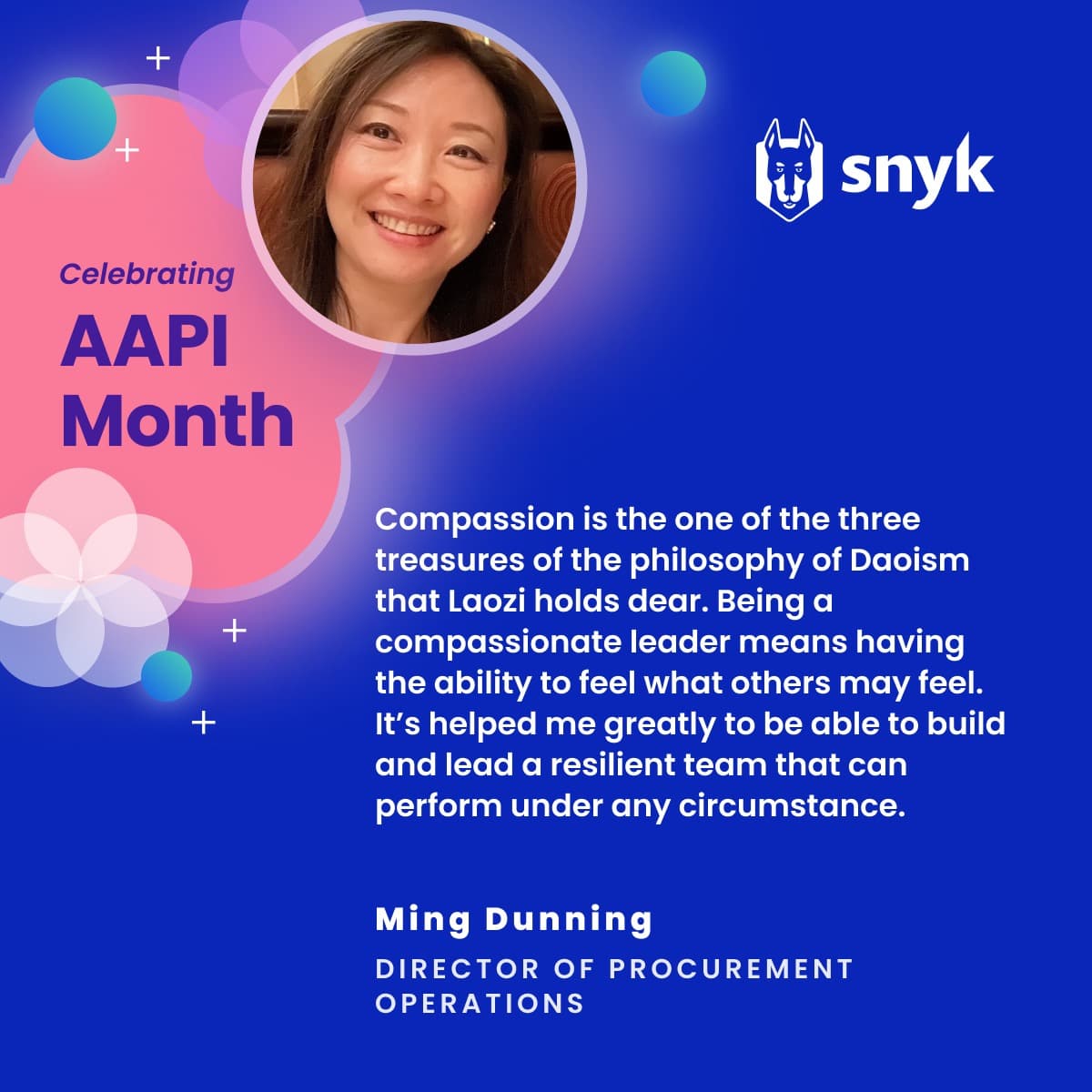
... Laozi cherishes frugality as his second treasure, which is totally in sync with what I do as a procurement professional to always look for cost savings opportunities and ROI efficiency.
Understanding AAPI history and struggles — breaking the bamboo ceiling
While AAPI month is a time to celebrate our heritage, it’s also a time to learn about our community’s history. Educating ourselves and others not only helps prevent history from repeating itself, it also connects the dots that have led to where we are today. We believe that arming our collective society with this information is one of the critical foundations to help us move forward and make progress toward an inclusive and more equitable world. Tori discussed several notable moments in AAPI history:
Discrimination against Asian immigrants began as soon as they started moving to America, seen as an economic and “racial purity” threat to white Americans. Chinese migrants began living in the US starting in the 1850s, and soon after exclusionary immigration policies followed, such as the Page Act of 1875 and the Chinese Exclusion Act of 1882, making legal Chinese immigration extremely difficult. Waves of immigrants from other Asian countries began to arise in the late 1800s and early 1900s, with similar oppressive acts and policies following them.
This Anti-Asian racism became focused on Japanese Americans during World War II and was exacerbated after the attack on Pearl Harbor in 1941. Due to this, Executive Order 9066 was instated, forcing 120,000 Japanese Americans (two-thirds of which were citizens) to relocate to Japanese internment camps. Because Japanese Americans were now painted as the “enemy,” the US government deployed a strategy to build public support for Chinese Americans, as China was an ally during WWII. This eventually resulted in the stereotyping of Asian ethnicities in the US — calling them the "model minority"
Fast forward to today, Asian Americans still face hate and racism, all while the stereotyping and narrative created as a result of this discrimination glosses over the challenges faced, most of them supported by the US government at the time.
The anti-Asian sentiment still exists. After the September 11th attacks, discrimination was amplified, with West and South Asians being profiled regardless of ethnicity or religion, and violence against Chinese and other Asian Americans increased during the Covid-19 pandemic. Asians and Asian Americans face issues such as workplace discrimination, low usage of mental health services, displacement due to gentrification, and spiking hate crimes and violence.
A few of the Snykers reflected on the idea of the bamboo ceiling and gave advice for others in the AAPI community to overcome it.
Vandana gave two big pieces of advice:
Breaking the bamboo ceiling in a professional setting can be challenging. If I want to share my perspective: Build a strong professional network, and seek out allies and advocates
Yanira also spoke about overcoming the bamboo ceiling:
Hard work is often not enough to be noticed. You have to be purposeful and strategic in focusing on matters that move the needle for the company. You also want to find sponsors and mentors who are supportive and can provide practical advice and help you develop. In turn, each of us must also help others advance by sponsoring and mentoring more junior persons.
I recommend a book called The Unspoken Rules by Gorick Ng. He describes how to gain influence and succeed in a corporation. While these rules may seem common sense to those whose parents and other family members work in corporations, the author breaks down work expectations and gives useful advice.
Why is AAPI Heritage Month important?
A big step towards elevating AAPI voices starts with celebrating the rich heritage, culture, and contributions of Asian Americans and Pacific Islander Americans. These Snyk employees reflected on why it’s important to celebrate AAPI Heritage Month specifically. Here’s what they said:
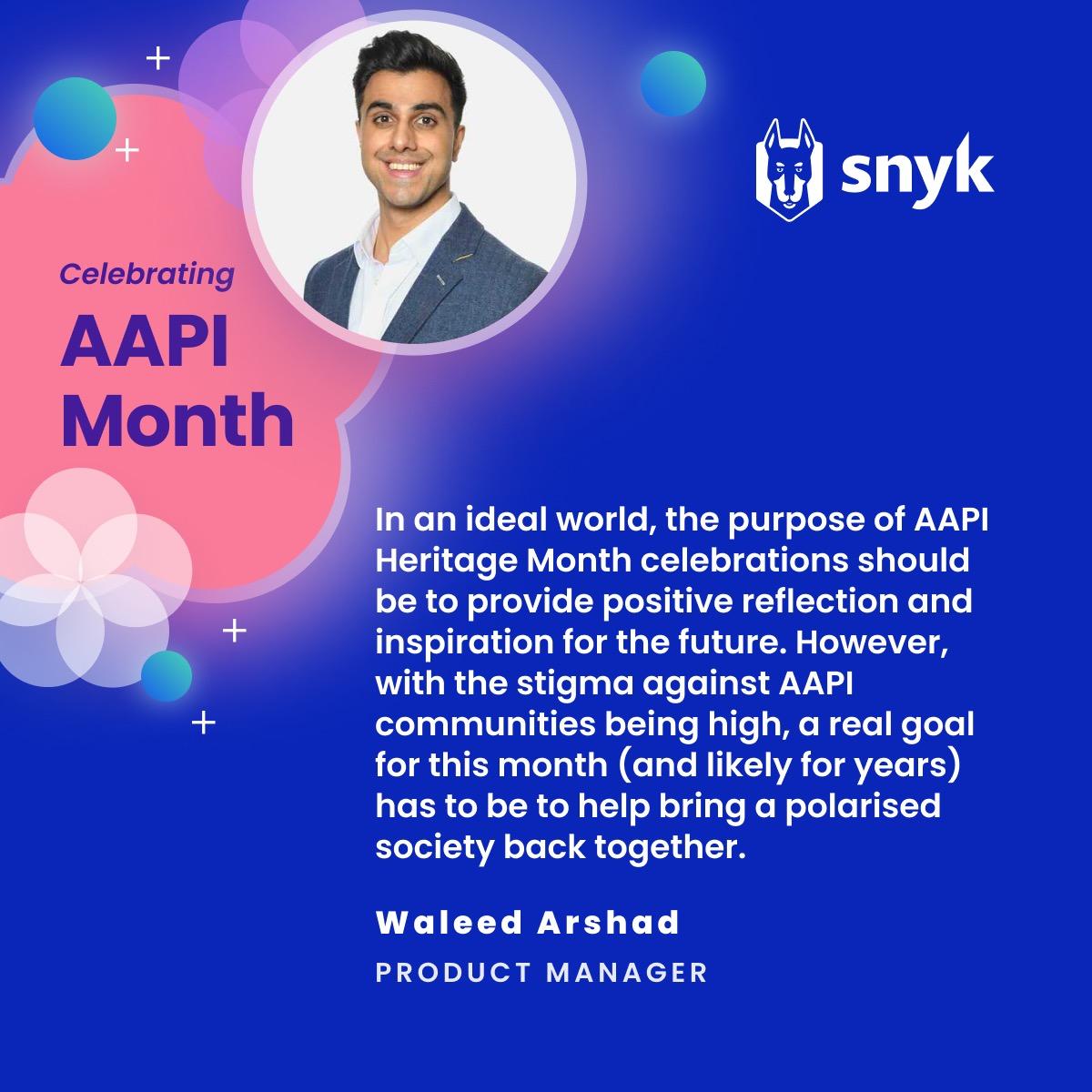
Highlighting the positive impact the community has already had on the country (and the world, for that matter) and the positive impact to come helps massively, and everyone has a part to play in ensuring that this message is heard. Whether it's engaging on social media, events, or even starting conversations around this, everyone can help and have an impact. The sooner we bridge the gap between communities, the sooner we can move to inspire greater collaboration and impact for years to come.
- Waleed Arshad
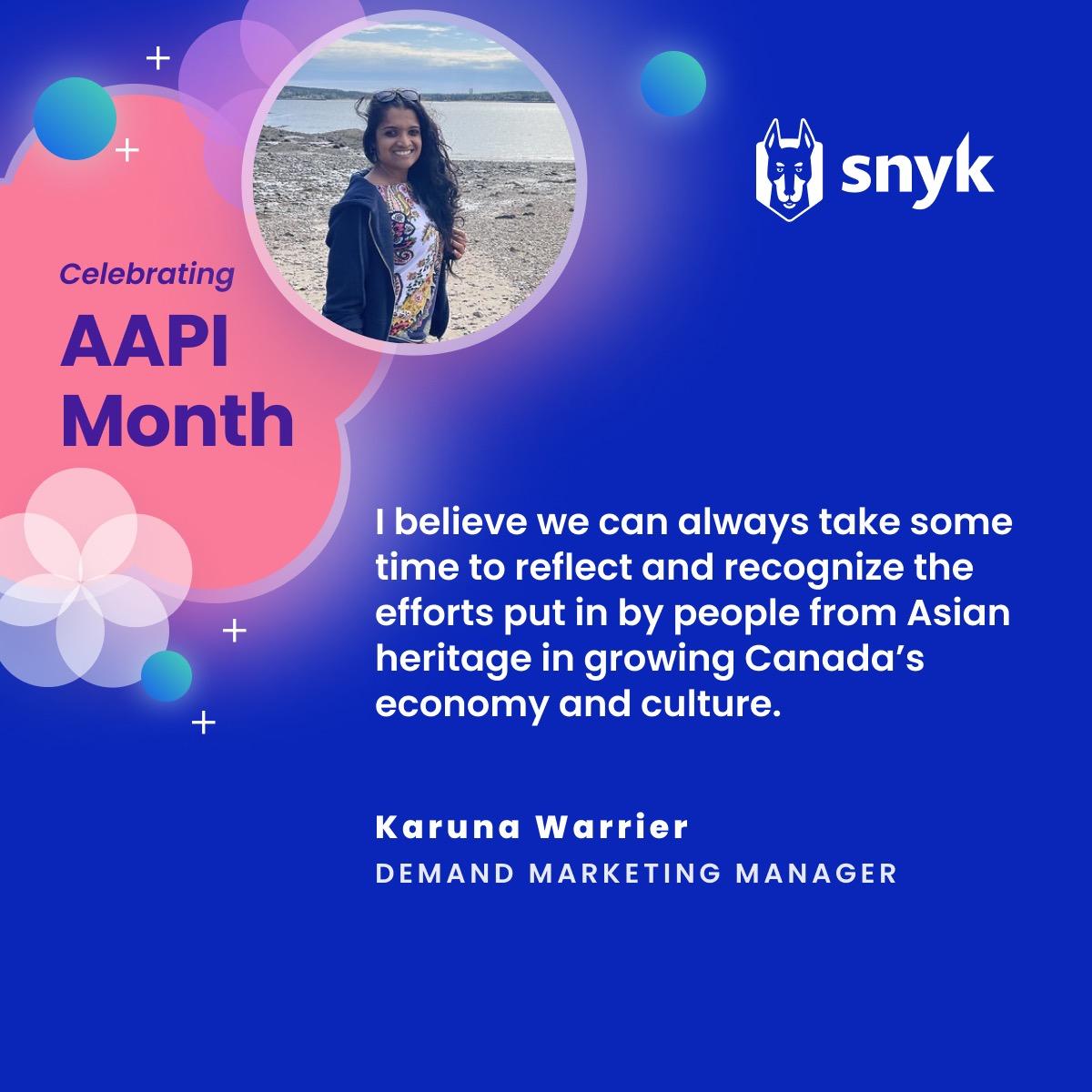
…With this recognition that I have received, I feel belonged to and part of the Canadian culture.
- Karuna Warrier
What makes the culture so beautiful is the story and people behind it. When we share ourselves, that is how the world heals and grows. I feel appreciative about inheriting my Asian heritage and hope others can find aspects of the heritage that excites them!
- Fion Lee
As we celebrate the vast Asian diaspora this month, let’s also remember to educate others as well as ourselves. A great reminder from Tori:
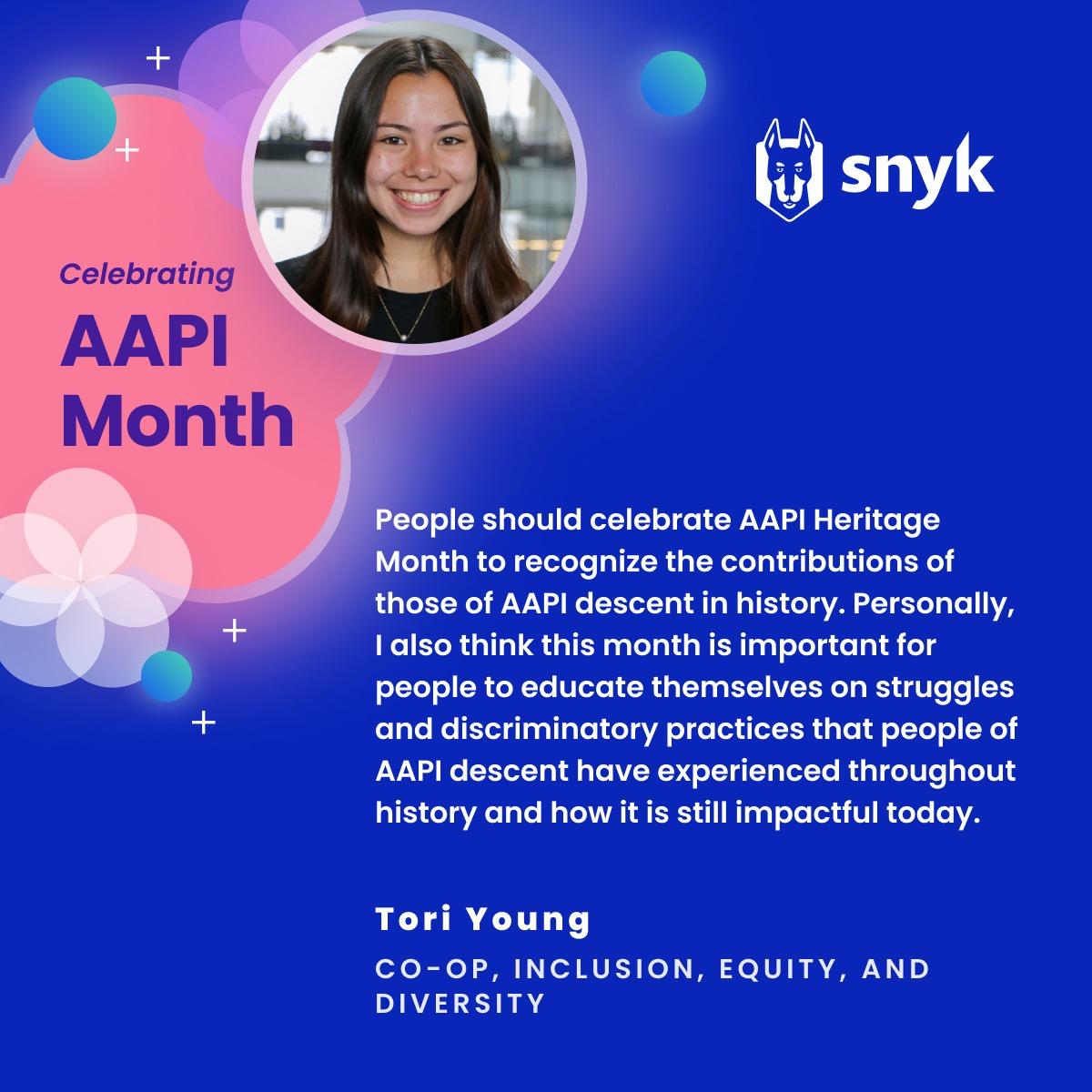
To hear more from these Snykers this month, or other Snykers throughout the year, tune in to our social media and check out our #LifeAtSnyk hashtag.
